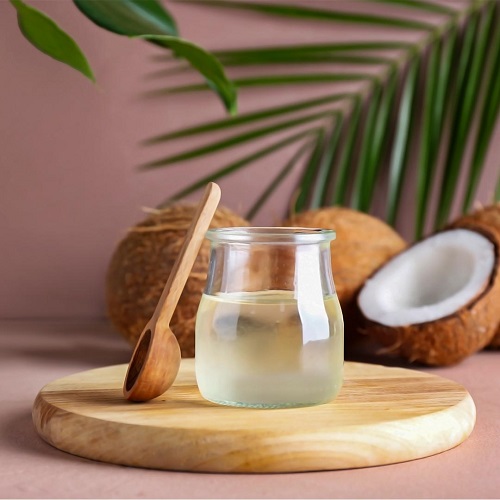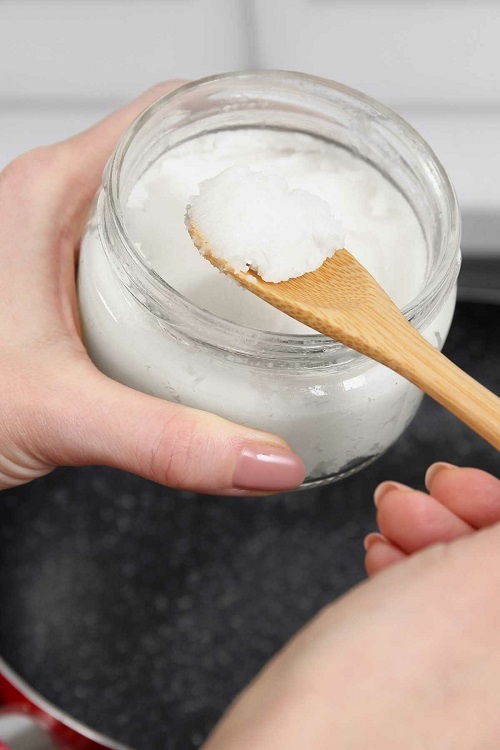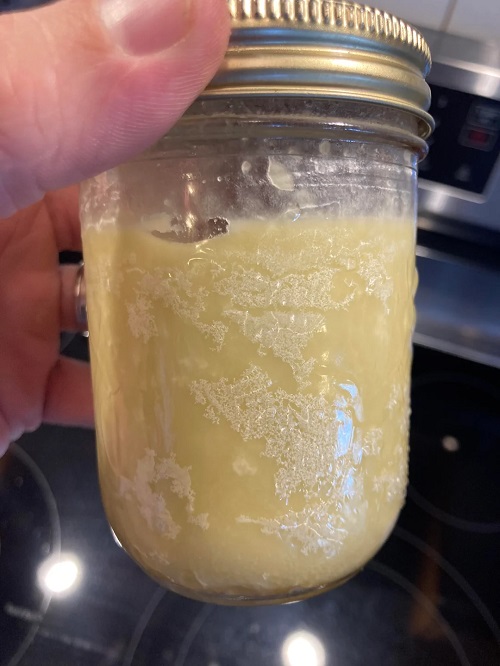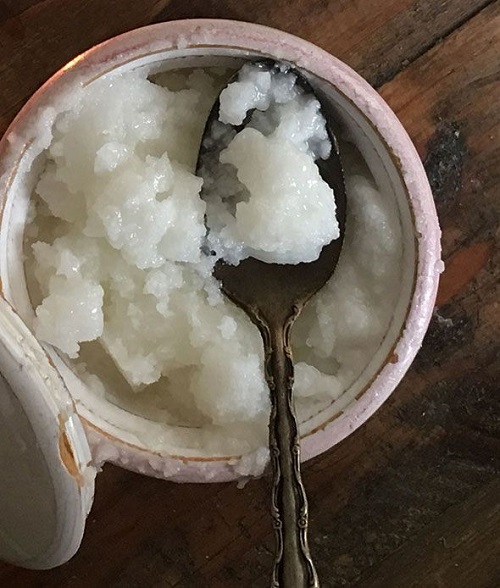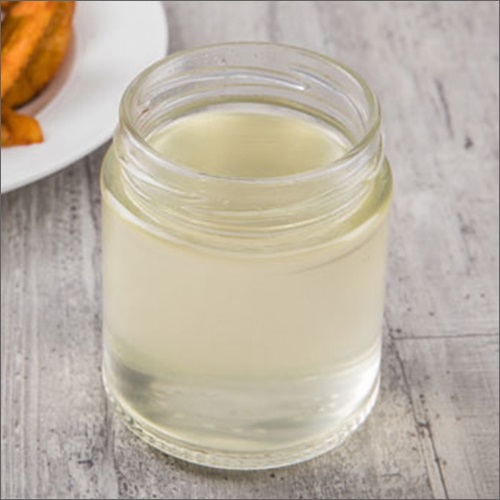Coconut oil is a staple in all households for its various uses. But the million-dollar question is—does coconut oil go bad? Know now!
We are sure at some point in life, you have quite extensively used coconut oil, whether for cooking or beauty purposes like hair care or even skin care. Known for its various benefits, coconut oil has unsurprisingly become a staple in households for generations. But if you have a jar of coconut oil sitting on your shelf or pantry for ages, you might ask yourself—does coconut oil go bad? Or does coconut oil expire? Let’s explore here!
Does Coconut Oil Go Bad?
Yes, coconut oil does expire.
Like all other oils, specifically cooking oils such as vegetable or olive, coconut oil has a long shelf life of 2 years when stored properly. What you must know is that coconut oil comes in two varieties—unrefined or extra virgin coconut oil and refined coconut oil.
First things first, can virgin coconut oil go bad? To answer that, we must know what virgin coconut oil means. Derived and pressed from coconut meat, virgin, and extra-virgin coconut oil does not undergo too much processing and retains the natural coconut flavor and scent. This is why unrefined coconut oil lasts longer and has a better shelf life of 5 years in some cases.
To dive deeper, unrefined or virgin coconut oil has a longer shelf life because it contains natural preservatives and more antioxidants that it retains through less processing. This prevents it from spoiling too quickly. It is not only the best form of oil you can buy or even make at home! However, you must always check the self of coconut oil before buying alongside its quality.
Refined coconut oil, as you can understand, goes through much more processing, which includes bleaching and deodorizing the oil. Though these processes remove impurities, they also reduce the shelf life to a maximum of 2 years. That is because the oil is stripped of its natural antioxidants and other beneficial compounds, making it susceptible to spoilage and oxidation.
Note- The level of beneficial fatty acids in both types of coconut oils starts to fall after a year, so it would be best if you change your oil every year, even if your coconut oil did not go bad.
Why Does Coconut Oil Go Bad?
While you know what causes coconut oil to go bad, there is more to do it. Generally, coconut oil goes bad or expires because of exposure to air and light, which kickstarts a process called oxidation. Oxidation is a process where the fatty acid chains in the oil start to break down, forming unstable compounds called free radicals.
Using coconut oil, which has gone bad, can have serious health risks because free radicals are highly reactive molecules that damage your cells, causing several diseases. When the oil starts developing a rancid taste and smell, it could be because of the following factors:
- Air
- Light
- Moisture
- Heat
- Certain Metals
- Bacteria and Other Microorganisms
How To Tell If Coconut Oil Has Expired?
When buying coconut oil from a store, you should always double-check the expiry date. Besides that, there are other ways to tell if the coconut oil has started going bad.
- The sign that you should be looking for in pure and fresh coconut oil is the fresh, undiluted scent of coconut. However, if you notice an unpleasant odor like sour, musty, or like paint, it could mean your coconut oil has gone bad or expired. In that case, it’s time to trash it. However, you must remember that refined oil will not have any scent of coconut.
- Virgin coconut oil generally appears white or slightly yellow. However, if you see that your organic coconut oil has turned a stranger, darker color and maybe even cloudy with black particles floating around in it, then it’s possible it has expired and has nasties growing in it. Moldy coconut oil deserves nowhere in your home, so throw it out!
- Fresh, organic coconut oil should either be liquid or solid, depending on whether you store it at room temperature or in the fridge. If it is liquid, it should have a thick, glossy texture and an even texture if it is solid. If you see your coconut oil having a grainy, runny, or curdled milk texture, this is a sign it has gone bad and could even be a sign of moldy coconut oil, and it’s time to ditch it.
- If you bought your coconut oil recently and there’s no reason it should go bad, you could confirm its freshness with a taste test. A brief lick should ensure the nutty and slightly sweet flavor of coconut oil. But if you find it sour or bitter, the coconut oil has probably expired, and it’s time to say goodbye.
Best Storage Tips
A jar of coconut oil can be really expensive, and when it expires, it can be a real pain. In such a case, how do you store it so you can extend the shelf life of coconut oil to the max?
Normally, a jar of coconut oil would have its “Best By” date so you know when to change your stash, but as a rule of thumb, the shelf life of coconut oil is two years on average. But here are a few tips on how you can store you can prevent your coconut oil from going bad too quickly.
- Exposure to air and light will make your coconut oil go bad faster, so you must always keep the cap on the container firmly closed. Oxygen can break it down faster than even heat, causing mold to grow in it. Ensure that the oil is at room temperature and that the container is airtight and sealed unless you are using the oil.
- Store it in a dark, dry place. Direct sunlight can speed up oil oxidation, causing harmful free radicals.
- Though refrigerating can help the oil last longer, making it less prone to oxidation, it might also make the oil solidify and become extra hard. If you are willing to take that bargain, you can store coconut oil in a refrigerator, ensuring it is sealed properly.
- If you do not prefer keeping coconut oil in the refrigerator, ensure that you keep it in a place away from any heat source. If you intend to use it mostly in the kitchen, keep it inside the pantry cupboard or drawer, as these places are cool and dry. Avoid keeping it near cooking spaces or the oven.
- To ensure no cross-contamination, which could ultimately cause moldy coconut oil, you must ensure that the utensils you use to take it out are always clean. Using a dirty spoon from the spoon will do nothing but introduce bacteria and other germs to your oil, leading it to go bad.
- You should get enough coconut oil to last a few months so that you do not risk spoiling it. First, you must consider what you will be using the oil for and how often you’ll be using it. If it’s a lot, you could invest in a bigger jar and finish it up quickly in a few months.

